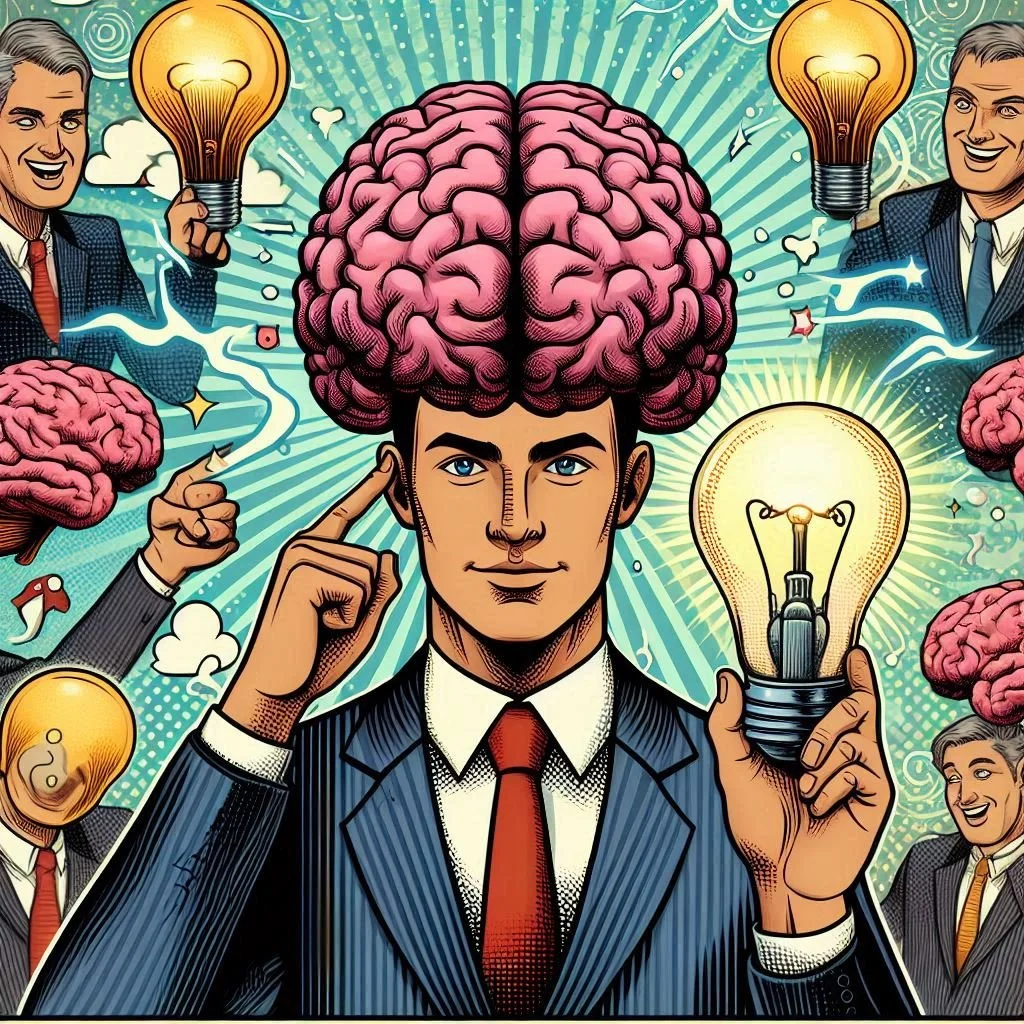How Managers Can Apply Cognitive Load Theory to Enhance Team Performance
Why Applying Cognitive Load Theory to Enhance Team Performance Is Such a Tricky Situation
Optimize team management in minutes with ManageBetter. Start your free trial now and join Uber and Microsoft in boosting performance, gathering insights, and generating reviews—all AI-powered, no writing required.
Enhancing team performance through the application of Cognitive Load Theory (CLT) presents several challenges for managers:
Complexity of Cognitive Processes: CLT involves understanding how cognitive processes such as attention, memory, and problem-solving interact during task performance. Managers need a deep understanding of CLT principles to effectively manage these cognitive processes and optimize team performance.
Individual Differences: Each team member may have different cognitive capacities and learning styles. Managers must tailor strategies based on individual needs to prevent cognitive overload or underload, which can hinder performance and learning.
Balancing Task Complexity: CLT emphasizes matching task complexity with the cognitive abilities of team members. Finding the right balance ensures tasks are challenging enough to stimulate learning and growth but not so difficult as to overwhelm team members.
Effective Instructional Design: Applying CLT requires designing learning and work environments that minimize extraneous cognitive load (e.g., distractions, unclear instructions) and maximize germane load (e.g., meaningful learning activities). This requires expertise in instructional design and learning psychology.
Integration with Organizational Culture: Embedding CLT principles into the organizational culture may face resistance or require cultural shifts. Managers need to communicate the benefits of CLT effectively and ensure alignment with organizational goals and values.
Continuous Monitoring and Adaptation: CLT implementation is an iterative process that requires ongoing monitoring of cognitive load and performance outcomes. Managers must be prepared to adjust strategies based on feedback and evolving team dynamics.
Given these challenges, managers can benefit from a structured approach to applying Cognitive Load Theory to enhance team performance.
Applying Cognitive Load Theory to Enhance Team Performance
What is Cognitive Load Theory (CLT)?
Cognitive Load Theory (CLT) is a psychological framework that explores how the human brain processes information and the limits of cognitive capacity. It categorizes cognitive load into intrinsic (related to task complexity), extraneous (related to how information is presented), and germane (related to learning and problem-solving). CLT aims to optimize learning and performance by managing these types of cognitive load effectively.
Why is CLT Appropriate for Enhancing Team Performance?
CLT provides managers with insights into how to structure tasks, presentations, and learning environments to maximize team performance. By understanding and managing cognitive load, managers can ensure that team members are engaged effectively, learn efficiently, and perform at their best.
How to Apply CLT to Enhance Team Performance
Assess Cognitive Demands: Start by assessing the cognitive demands of tasks assigned to the team. Identify the complexity of each task and its potential impact on team members' cognitive resources.
Design Clear Instructions and Presentations: Use CLT principles to design clear instructions and presentations that reduce extraneous cognitive load. Ensure information is presented logically and concisely, using visual aids and structured formats to aid comprehension.
Chunk Information: Break down complex tasks into smaller, manageable chunks to reduce cognitive overload. Provide opportunities for practice and reinforcement to enhance learning and retention.
Provide Adequate Support: Offer support resources such as job aids, training sessions, and coaching to help team members manage cognitive load effectively. Encourage peer support and collaboration to facilitate learning and problem-solving.
Monitor Cognitive Load: Continuously monitor team members' cognitive load during tasks and projects. Solicit feedback to understand how well team members are managing workload and adjust task assignments or support as needed.
Promote Learning and Reflection: Foster a culture of continuous learning and reflection within the team. Encourage team members to evaluate their own cognitive processes, identify areas for improvement, and apply new strategies based on CLT principles.
Sample Dialogue
MANAGER (M): "Hi team, today we're going to discuss our approach to managing client projects more effectively. Based on CLT principles, we'll break down project tasks into smaller steps to reduce cognitive load. Let's start by identifying the key components of our current process and where we might be experiencing cognitive overload."
TEAM MEMBER (TM): "I think during the initial client meetings, we often feel overwhelmed by the amount of information we need to process and remember."
M: "That's a great observation. To address this, we can implement structured templates for meeting notes and use visual aids to summarize key points. This will help reduce extraneous cognitive load and allow us to focus more on understanding client needs."
TM: "That sounds like a practical approach. It should also help us retain information better for follow-up actions."
M: "Exactly. By applying CLT principles, we aim to streamline our processes, enhance learning retention, and ultimately deliver better outcomes for our clients. Let's pilot these changes and gather feedback to refine our approach."
In this scenario, the manager applies CLT principles by recognizing cognitive load challenges during client meetings and implementing structured solutions to optimize team performance. By incorporating CLT into everyday practices, managers can create a supportive environment where team members can thrive, learn effectively, and contribute to overall organizational success.
Conclusion
By embracing Cognitive Load Theory, managers empower their teams to work more efficiently, learn continuously, and achieve higher levels of performance. This approach not only enhances productivity but also fosters a culture of innovation and adaptive learning within the organization.
Sharpen Your Leadership Edge: Join 3,000+ executives receiving weekly, actionable insights from industry experts. Subscribe free to The Thoughtful Leader and elevate your team's performance.

